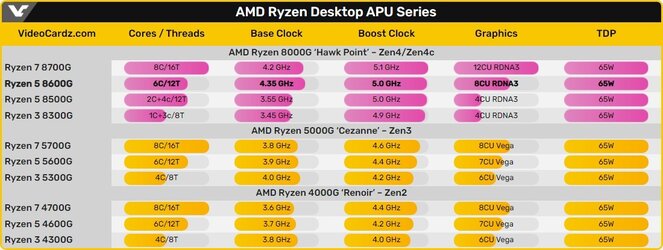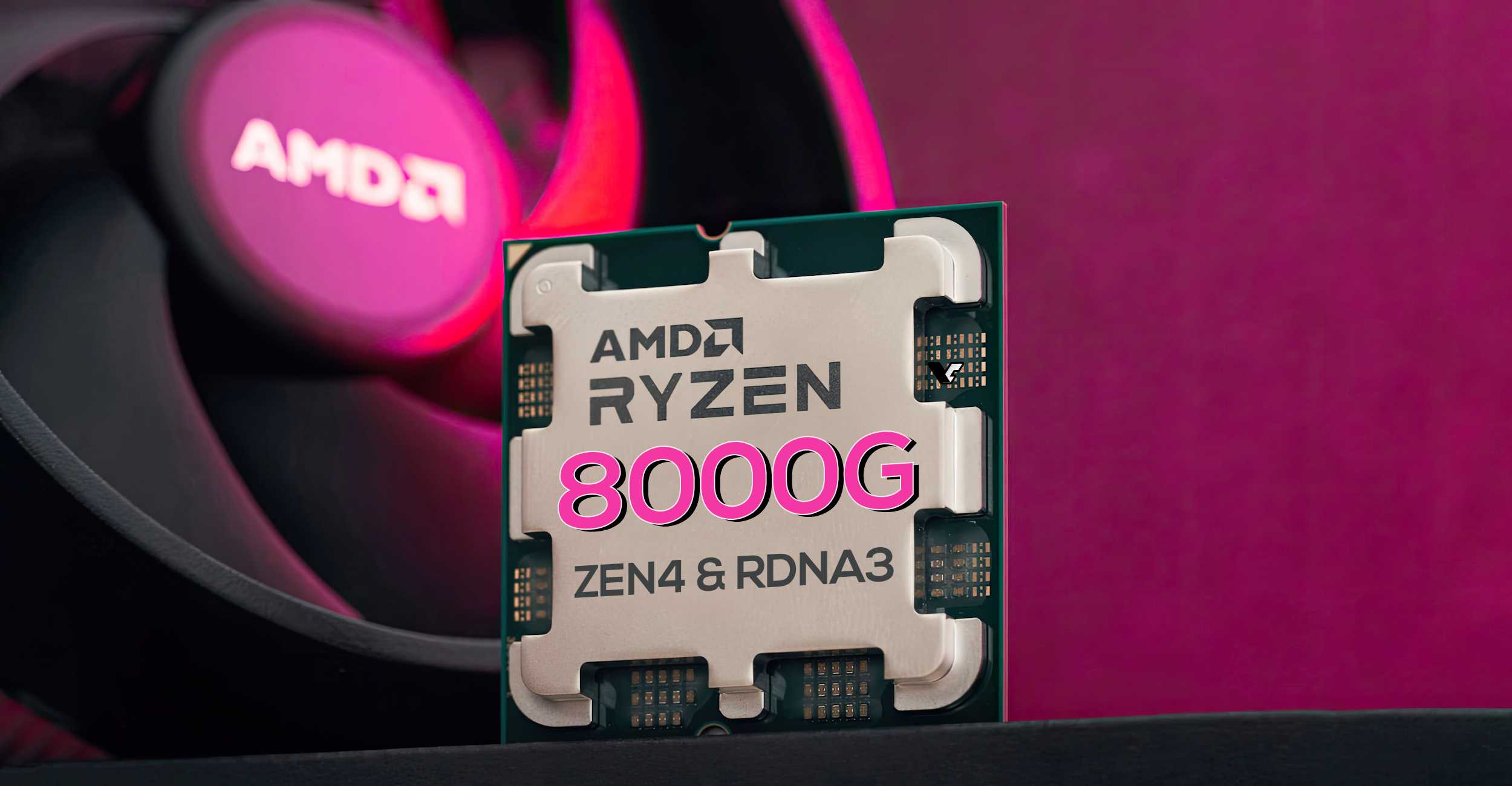I'm not convinced so far. I really liked 4000/5000 APUs, but mostly because of how they were overclocking, and RAM scaling was much better than on regular series. I don't think it will happen now, but I haven't seen any leaks if 8000 APUs have any better memory controllers or motherboards will actually run at more than 8000MT/s. Currently, most popular motherboards reach 8000 stable but don't even start at the next ratio or with bclk OC (like 8000 is stable, 8060 can't pass training).
Most RAM brands (officially) don't have anything above 6400 for AMD in their offer. Many don't even have anything above 6000. It suggests some possible issues, even though unofficially, we can set much higher clocks. 4-module setups (low or high capacity) are also very disappointing, so most users end with 2 modules or 2-module motherboards. Soon, we will see 64GB modules, so it's not bad, but if you go with 4 modules vs 2, then you will go down from 6000-8000 (depending on capacity and IC) to 3600-5200.
Remember that cheap motherboards = no bclk OC ... or maybe there is, but it won't work much above 102MHz.
I just see it as no RAM OC or anything additional, and it will be "fun" for one weekend. New mobile APUs and some weird motherboards like MinisForum can be more interesting. I see MinisForum is selling out before they release a new generation. They just finished the Christmas sale, and released at least two new products (discontinuing two older). So far, they have only
BD770i with Ryzen 7745HX, but I bet they are working on the 8k series already. Just one tip. If you decide on anything from them, then better use their Amazon store as it's much faster with shipping, and you can always return it if you don't like it. People complain about their online store - delivery time, basic info about orders, and some more.
I somehow missed it before, but there is
Universal x86 Tuning Utility, which works with desktop and mobile CPUs, so even if you have very limited BIOS, then you can unlock power limits and some other things. Ryzen Master and Intel XTU work with some of the highest mobile CPUs, too. You probably know that, but if you didn't, then you can play with the software, regardless of which way you pick.
The APU with C+c cores can be quite cheap, but everything around will cost a bit. Since current motherboards will support Ryzen 9000 CPUs, then I recommend something better than the cheapest motherboard, as you may lose full support in a couple of months.
It's my point of view and, of course, you don't have to agree with that.





